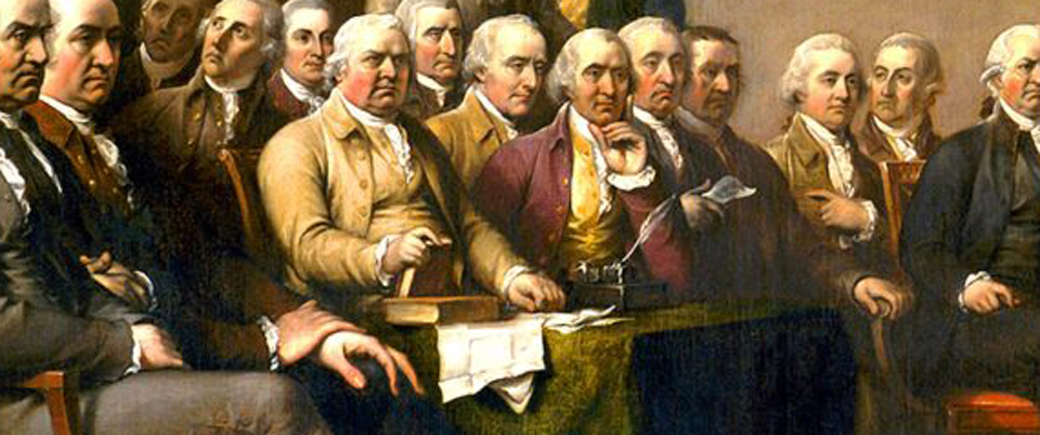Tom Shachtman
Tariffs, taxes on the wealthy, the national debt, regional disparities, keeping manufacturing on these shores, our leaders’ private vs. public interests—these were issues present at the birth of this country that retain startling relevance in today’s world.
“Some of the circumstances have changed,” says Salisbury author Tom Shachtman, “but the arguments are always the same.”
In The Founding Fortunes: How the Wealthy Paid for and Profited from America's Revolution, Shachtman’s third book examining the personalities and issues surrounding the American Revolution, he looks at the economic factors that led to the war, explores how the war was financed and how the modern American economy evolved in its aftermath.
He said his current book, released January 21st, which he will discuss January 29 at 6PM as part of the White Hart Speakers Series in Salisbury, is a natural extension of his previous work, How the French Saved America. “France was very important in financing the war,” he said, “but I went easy on that in this book because I discussed it so much in the last.”
But, just as he found that most Americans do not fully appreciate the extent of French involvement in the founding of the United States, he also found many people have no idea of how the Revolution was financed. “As I told stories about this, people had no idea of how it got paid for, who paid for it and what the consequences of it were—much less how the country fared in its first quarter century,” he said.
In telling the story, he follows the stories of a handful of men, some well-known—such as Alexander Hamilton, Robert Morris, John Hancock, Oliver Wolcott, Jr. and Albert Gallatin—and others more obscure.
“The people whose names we know were a small, elite group,” Shachtman says, “but there were lots of people on the front line for purchasing whose names we no longer know. Washington was serving without pay but his expenses were paid which were often substantial. For others, it wasn’t clear they were ever going to get paid—if they lost, they certainly wouldn’t be paid at all or might lose their lives. It was a fairly risky endeavor that required a lot of people stepping up.”
For instance, to equip and feed the army prosperous merchants such as Thomas Mifflin, Washington’s quartermaster general, extended their personal credit to purchase supplies. Some of them ended up bankrupt.
Why would men wealthy enough to help the cause take that risk? According to Shachtman, who declares, “the Constitution was as much about capitalism as democracy,” the Revolution was a necessary evil for an expanding country held subservient to British economic goals. He noted that the British Parliament held the financial strings of its colonies, requiring that all trade be funneled through England.
“There was the adage, ‘No taxation without representation,’” he said, “but that was just the tip of the iceberg. It was not just a lack of representation—the whole system was rigged so that real money went to Great Britain. If you wanted to sell your lumber for ship’s masts, Great Britain would say, ‘You can only sell it to us and we will tell you what price we will pay—and we will only give you credit here that you can draw against.’”
With the British keeping their thumb on industrial development in the Colonies, most goods were imported from or through England. There was a reason that farmer George Washington ordered his clothing, dishes, furniture—all the things a gentleman enjoyed—from England.
Shachtman explained that America worked largely on the barter system. “The economy had almost nothing to do with cash,” he revealed. “At one point, George Washington owed someone 95 pounds and he went to court to say he didn’t have the money to pay it. He and other farmers were very cash poor. They lived well and had tremendous credit in London but little cash. The wealthy owed everything to Great Britain.”
“There were no banks in America,” he continued. “Most people are astonished by that. It was a deliberate thing on the part of the British. You cannot make a lot of money without a bank around to work with. If you wanted to start a business, you were dependent on the richest people around, who might or might not float a loan to you. You had no choice of interest rates—if you didn’t pay, you didn’t get the loan. Not until banks came in in the 1780s did that begin to change.”
Similarly, the British controlled the formation of corporations. “Under the rules in the Colonial period, if more than five colonists wanted to form a corporation, they had to get permission from Parliament, which was almost never given,” he said. “So, you couldn’t get economies of scale where you could be a real wholesaler. So, the war was not just about political independence, but also financial independence.”
The war economy in the future United States was chaotic and reflected what would later be known as “crony capitalism.” Partly, this was inherent in the primitive administration of 18th-century governments. Rather than being paid salaries, officials took commissions from money that passed through their hands, a practice that encouraged corruption. It was also not illegal to mix public and private business so officials purchased from themselves or their friends.
The loose confederation that followed independence proved insufficient to the nation’s needs but Shachtman emphasizes that no mass movement demanded change. The Constitution, he writes, was championed “by a very small subset of the country’s wealthy.” The total was at best a few hundred men and they looked after their own interests.
The war had left the government deep in debt. “The debt in 1789 was 30 percent of our GNP,” Shachtman said. “We had an annual budget of $6 million to $10 million and our indebtedness was $83 million.”
Two of the main figures of the day, Alexander Hamilton, Secretary of the Treasury, and Thomas Jefferson clashed over how to manage the debt—laying the groundwork for philosophical differences that exist today. Hamilton argued against paying down the debt because it was a shared obligation that all the states should pay together and because he believed the money should directed toward building the government. Thomas Jefferson, who favored a small government, contended that the veterans and those who had underwritten the cost of the war should be paid. Washington threw his political clout behind Hamilton, and for five years, payments were deferred.
“These were two different ways of dealing with things,” observed Shachtman. “There is a pendulum swing in the book—Hamilton believed in trickle-down economics, in favoring the wealthy, while Jefferson and his associates said we have to pay attention to the common guy, to start educating people, to give them the opportunity to own land and to develop infrastructure.”
Shachtman has written or co-authored more than 35 books, including Gentlemen Scientists and Revolutionaries, Rumspringa: To Be or Not To Be Amish, Absolute Zero and Conquest of the Cold. He has also written documentaries for ABC, CBS, NBC, PBS, BBC and has taught at New York University and lectured at Harvard, Stanford, Georgia Tech, the Library of Congress, and the Smithsonian's National History Museum.


